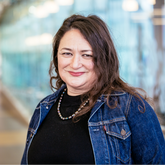
KIM TAUNGA (LIANZA PRESIDENT) INSPIRE, ENGAGE, CONNECT AND ENABLE
An IFLA WLIC is a very different proposition from any library conference I have ever attended. There are a dizzying number of sections, sessions, streams, and pre-and post-conference activities to attend. Sessions can also be accessed in any of the seven official IFLA languages.
We set up a pre-conference Zoom hui for those from Aotearoa who were attending. I am grateful to Winston Roberts, National Library of New Zealand and Chair of the IFLA Regional Division Committee for Asia Oceania, for giving us first-timers the benefit of his wisdom on navigating and getting the most out of the congress. I flew back to Auckland the day before the Public Libraries NZ Forum and went straight to Christchurch to speak on a panel with the National Librarian, Rachel Esson about the congress. The Public Library Manifesto, UN Sustainable Development Goals, indigenous language revitalisation, mis and disinformation and our influence on and in the IFLA Asia -Oceania region were some key themes for me.
The congress itself was themed around the IFLA Strategy 2019- 2024 ‘Inspire, Engage, Connect and Enable’ and it hit the mark in all four quadrants. Many parts of the congress are still resonating and revealing their relevance for me as the current current LIANZA president and as a member of the library and information profession. I intend on sharing more through my president’s column this year. There was a myriad of people to meet and connect with. It was gratifying and validating to meet both Patty Wong, the immediate past president and first Asian American president of the American Library Association (ALA), and Lessa Kanani’opua Pelayo-Ozada the current and first Pasifika president of ALA.
As the first Pasifika presidents of LIANZA, Richy and I felt honoured to meet them both. Richy has connected Lessa to our LIANZA Pasifika Information Management Network (PIMN) executive aiga and we will talanoa in the coming weeks to support each other in things Pasifika and librarianship.
A lunchtime kōrero with the librarian from Saudi Arabia who was at the congress presenting their Public Library of the Year entry was interesting from project and political points of view. It was great to meet and renew connections with librarians from Australia and members of the very active IFLA Section, Library Buildings and Equipment.
My favourite keynote session was Helen Shenton from the Trinity College Library. She spoke about the conservation and reimagination of the Book of Kells exhibition. There is lots of information online about this major project but to hear Helen speak about the visceral and emotional response that can only be experienced by being physically present with the Book of Kells, was inspiring and thought-provoking. Especially in light of the pandemic journey, the world is on and the question of how we make our heritage collections accessible for a variety of audiences.
A final inspiration was the FAIFE (Freedom of Information and Freedom of Expression) sessions which spoke to the “ethical foundation of why we are librarians” and how we must make informed, ethical and accountable choices in our work, every day.
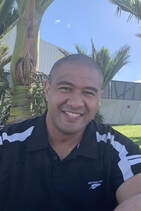
Where to begin! Firstly, it was very special for me because I’ve never been to the Northern Hemisphere and to be physically standing on my Irish whenua, was a moment I truly cherished. And to do it with my wife and daughter, and colleagues from New Zealand, made it even more unique. People have asked me what Dublin is like and I’ve said that it felt somewhat like home— in terms of the landscape and the weather, only we don’t have the centuries of history that they have. For me being a Samoan boy from South Auckland this was mind-blowing!
My number one, non-negotiable tick-box historic place to see in Dublin was the Trinity College Library and its Book of Kells. Both were astounding! And it made me think, if the builders of the library, or the authors/ illustrators of the Book of Kells, would ever have imagined that they would be leaving such a deep and profound impact on the world? This has been my train of thought for the past few months, seeking things that are long-lasting and not just a ‘buzz’ of the moment. Nothing wrong with the latter. It’s cool, but it is also fleeting. So, as I went through the conference, I looked at things from this point of view – is the content of this session expressing a long-lasting, positive impact, or is it just a nice ‘buzz?’
The winner of the IFLA Systematic Public Library of the Year Award went to Missoula Public Library, United States. Their building was great. State-of-the-art integrated and ‘flash’! But when compared to the Saudi Arabia nomination… let’s just say that the library building in Saudia Arabia (called Ithra meaning enrichment) looked like the Avengers Tower from Marvel. However, as we all know, new builds become old buildings and sometimes they become ‘not purposeful’ as societal needs change. What really made the Missoula Public Library impactful was their honouring of the indigenous people. Unfortunately, I missed the name of this American Indian community, but I was blessed to hear that such an institution would be honouring the indigenous people of the area first and foremost. New, flash buildings are great and needed, but honouring the people, that’s where the true, long-lasting impact occurs!
Another session that stuck out for me was ‘Empowering Library Leaders and Diversity Worldwide’. Four leaders from four different library systems shared their leadership experiences. But something that Christine Honold of Germany said resonated with me, “People should see themselves in libraries”. This was almost the exact sentiment our National Librarian, Rachel Esson, said in another session, about New Zealanders’s seeing themselves in our National Library. I’m not someone who wants diversity for the sake of diversity. But I do know the impactful value of people seeing themselves in an institution or our National Library. I’m not someone who wants diversity for the sake of diversity. But I do know the impactful value of people seeing themselves in an institution or organisation to be able to relate. And I can proudly say how in Aotearoa New Zealand, it is something we’re very aware of and working towards!
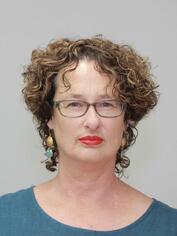
I was very lucky to have the opportunity to attend the amazing WLIC in Dublin. While very excited I was also somewhat apprehensive at the idea of travelling to the other side of the world where many COVID restrictions had been lifted, unlike New Zealand at that stage. I must have been an interesting site on the long-haul flights with most of my head and face obscured by a face mask, eye mask, and noise cancelling headphones. But I did manage to arrive in Dublin (and leave again) without getting COVID.
The first day of the congress focused mainly on business meetings and I attended both the Asia Oceania Regional Division meeting and the Libraries Buildings and Equipment section. This gave me a good insight into the mechanics of the organisation of IFLA, the business conducted by these committees and sections, and how enriching these groups are. Te Puna Matauranga o Aotearoa’s Winston Roberts chaired the Asia Oceania session and acknowledged the strong support this work gets from New Zealand.
One session that I found very powerful and still resonates with me was the keynote speech from former President of Ireland, Mary Robinson. Titled The Challenge of the Climate Crisis she set a very real and clear challenge to libraries in the 20th century, referencing the very recent climate conference in Berlin where the Secretary General of the UN stated that “We have a choice: collective action or collective suicide. It is in our hands.” She said she assumes that librarians are on the side of collective action. She identified 5 levels of injustice in the way that the climate crisis has come about. That the poorest countries are hit earlier and more ferociously, gender injustice, intergenerational injustice, the injustice of the different pathways to development in different regions of the world and the injustice to nature herself. She challenged librarians to identify the ways in which we can rise up and be part of the collective challenge to secure a sustainable future for people and the planet and to encourage people to talk to each other more and more about the climate crisis.
How can we create an enabling environment to start this vital conversation? These and other questions hit home with the audience of 2000 people from 200 countries at the congress. She shared a phrase used by her friend Archbishop Tutu, who described himself not as an optimist but as a “prisoner of hope” and the assertion that in many ways we all now have to be prisoners of hope in this difficult world, because “hope brings energy.” Mary ended her address with the assertion that we can choose our collective response to the climate crisis, to choose collective suicide or choose to be prisoners of hope and find in that the energy to be resilient. She left us with a quote from Nelson Mandela, “it always seems impossible until it is done.” So, I am sharing her challenge with all of you. How can we take meaningful collective action? And do you choose to be a prisoner of hope?
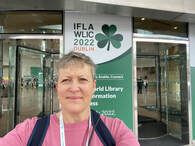
In late July news headlines focused on climate extremes. ‘Drought will shrink UK food crops’ and ‘NZ floods: hundreds evacuate as ‘atmospheric river’ brings deluge’. As Erica has mentioned, the opening keynote at the congress focused on the challenge of the climate crisis and was given by Mary Robinson. She shared a recent warning from António Guterres, Secretary General of the UN, that half of humanity is in the danger zone from floods, droughts, extreme storms, and wildfires, throwing out a gentle challenge to librarians to take collective action.
I followed a climate and sustainability theme over the next few days. Insights on the UN 2030 Sustainable Development Goals were shared by David Donoghue, former Permanent Representative of Ireland to the United Nations, at a panel session How the SDGs can Change Your Life. David was involved in writing and negotiating the SDGs and declared that “libraries are in a privileged position in helping communities achieve sustainable development goals.” Patrick Paul Walsh, the vice-president of education at the UN Sustainable Development Solutions Network shared open-source courses at the SDG academy and librarians from South America and Africa shared their own stories of engaging with the sustainable goals.
The last keynote was Climate, Conflict, and Community: The role of libraries in a world on fire delivered by Michael Peter Edson, a digital cultural strategist. He started with the proposition “How millions of bold librarians will help save the world by inventing a unique new form of global activism in response to the climate crisis”. We know that awareness of the climate crisis is high, but action is low. We know that the global library and information sector has the tools, the resources, the knowledge, the trust, the real estate and the collections. How are we trying to make these do something important and consequential in society? What are we doing?
There are around 2.5 million libraries in the world and hundred tens or hundreds of millions of librarians and information specialists in probably every community on earth. What shall we do? Michael challenged us to think about how librarians can create information access and community action that will help communities survive in the climate crisis. “We can all sit back and tread water and think about the difficult idea but as soon as you decide as an individual or a workgroup or an institution to say something in public it is a completely different game. Working in safe, slow incremental ways will not enable us to get over this Big Frikin’ Wall”.
I thought back to the first day when Mary Robinson said that the single most important thing we can do is talk about the climate crisis - opening up the conversation. How can libraries encourage people to talk more about it, how can we use knowledge to motivate people to take action? How can digital technologies help solve humanity’s grand challenge? How can libraries help bring hope into this conversation? Let’s start talking.
A couple of small steps for back home:
• Come to a consultation hui in October on the draft LIANZA strategic plan and bring your ideas for advocating about climate change.
• Sign up HERE if you want to join with other library and information professionals to begin talking about how we can take collective action on the climate crisis.
A couple of resources:
How to be a craftivist – the art of gentle protest by Sarah Corbett
Green Ideas series published by Penguin
IFLA’s Get into SDG Action Week guide

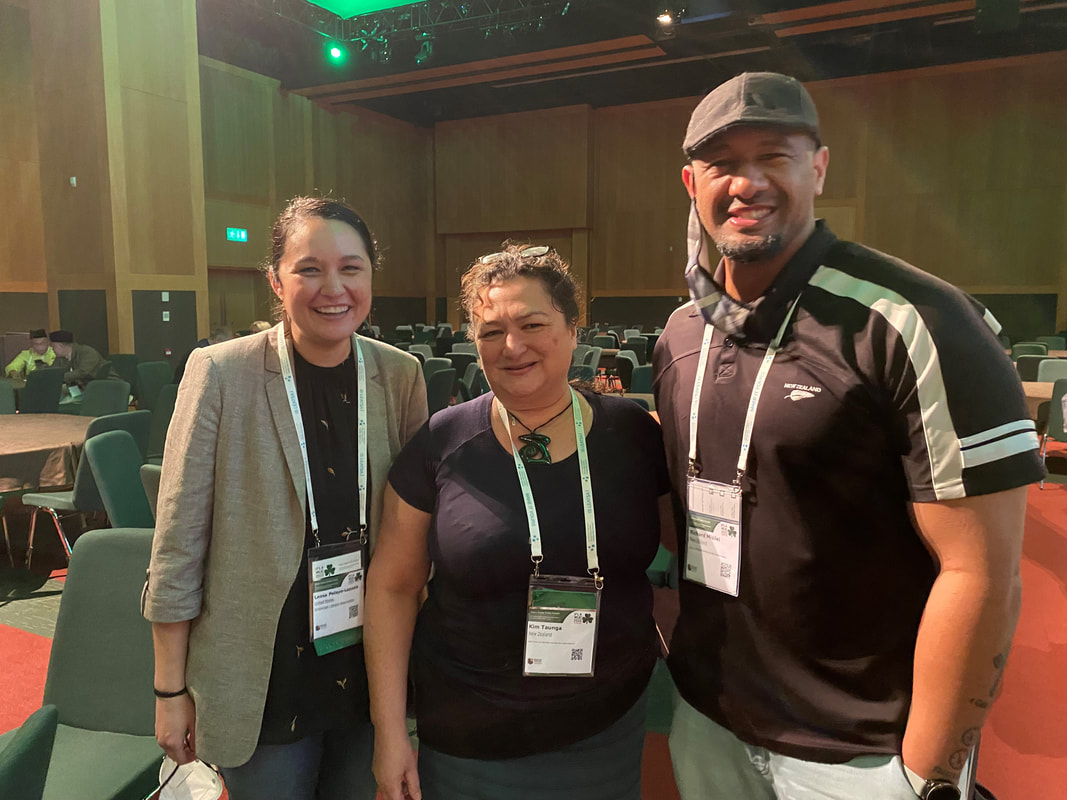
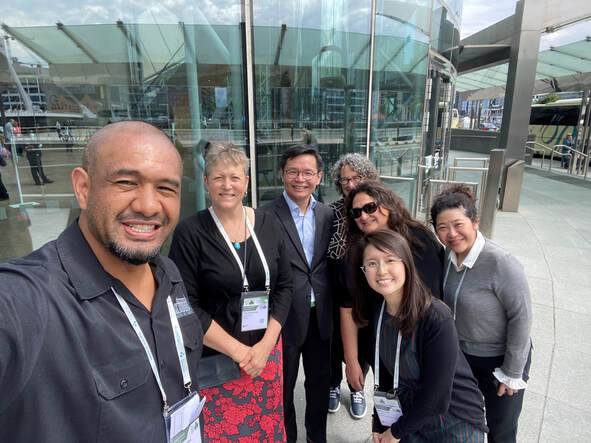
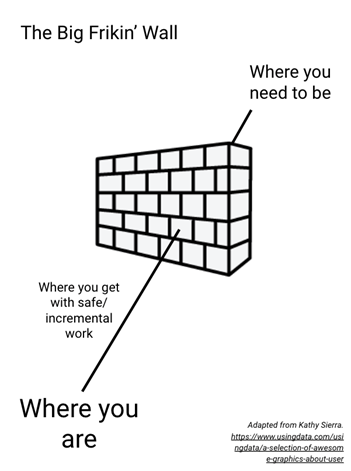

 RSS Feed
RSS Feed